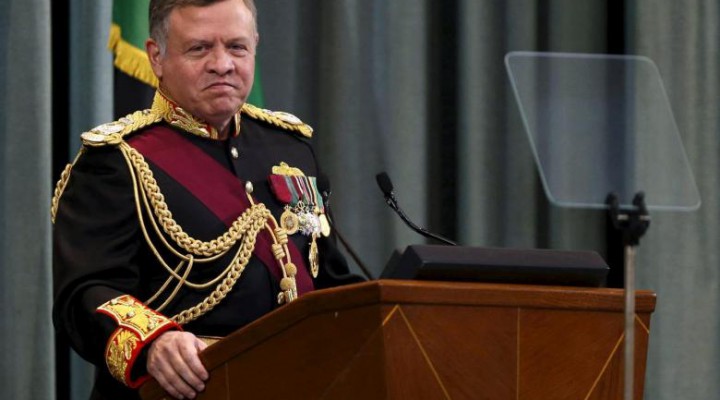What happened in Jordan?

A foreign plot to destabilise the kingdom… or an attempt to stifle domestic discontent?
It is too early to tell whether Saturday’s detention of prominent Jordanians accused of conspiring to destabilise the country amounted to the thwarting of an attempted coup. It may be more accurate to describe the move as a pre-emptive strike aimed at safeguarding Jordan against Israeli and Gulf interference in its internal affairs, using local proxies, to weaken and sow divisions in the country. It could also be an attempt to stifle growing public anger and frustration at the frightening spread of the coronavirus pandemic and rising rates of unemployment, inflation and impoverishment.
Agree with him or not, it is fact that King Abdullah II has been openly at war with Benjamin Netanyahu and his far-right Israeli government over occupied Jerusalem and its holy sites. Netanyahu has never stopped conspiring against Jordan. He ultimately wants to destroy the Jordanian state – by starvation and sowing chaos and instability to start with – in order to deport three million West Bank Palestinians there as part of the ‘alternative homeland’ scheme.
It was no coincidence that the Israeli government prevented Abdullah’s son, Crown Prince Hussein, from going to Jerusalem to pray at the al-Aqsa Mosque on Mi’raj Night. It wants to end all Hashemite or Arab custodianship over the mosque or Arab Christian churches in Jerusalem. The delayed official Israeli statement describing recent events in Jordan as an ‘internal affair’ with no hint of condemnation speaks for itself.
The arrest of former royal court chief and finance minister Bassem Awadallah – who was implicated in the sale of Jerusalem real estate to Jewish settlers and whom the government accused of having links to hostile external entities – will have pleased the majority of Jordanians, of all stripes. He is widely viewed as epitomising corruption, the misuse of public funds and illegal self-enrichment on a massive scale.
At the press conference it held on Sunday, the Jordanian government said it warned the king’s half-brother Prince Hamzah to desist from activities harmful to Jordan, and that the video clips he later released amounted to incitement against the country. It also claimed he was in contact with an unnamed individual linked to foreign intelligence service who offered to fly his family out of the country on a private jet. These are serious allegations, which contradict the prince’s claim that he was only exercising his right as a citizen and member of the royal family to speak out against corruption and mismanagement in state institutions.
Nothing was said at the press conference about the external entities supposedly complicit in the plot, amid widespread speculation about the involvement of Saudi Arabia and/or the UAE. The two countries were linked to the people implicated and arrested, and their subsequent statements of support for Abdullah were viewed as eyewash. Awadallah was very close to both of their de facto leaders. But we have yet to be provided with evidence to support or refute these accusations. There needs to be transparency and objectivity in releasing information about the affair, including after it was announced that a family reconciliation was brokered between Abdullah and Hamzah by their uncle Prince Hassan.
This crisis has come as a shock to Jordanians. But it also sends a message to the authorities about the urgency of the need to institute radical political reforms, adopt a serious strategy for combating corruption, bring plunderers to justice and recover stolen public funds, enable genuine political participation in a democratic and constitutional parliamentary system, allow new blood to assume responsibilities, give competence precedence over hereditary cronyism, and sweep away the old guard associated with corruption and failure that has led the country to the brink.
Jordan needs a fresh start. Otherwise, this latest crisis will pale in comparison to the truly existential crises it could face. Frustration is growing, and an explosion could follow.
https://www.raialyoum.com/index.php/what-happened-in-jordan/
 TheAltWorld
TheAltWorld 
0 thoughts on “What happened in Jordan?”